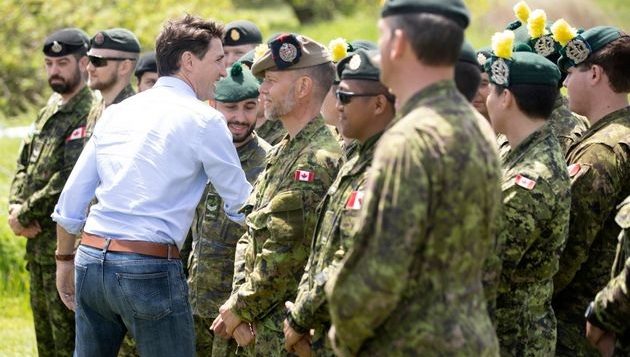New figures obtained by Canadian Press show that nearly one in five veterans hangs up the phone before their call is answered by Veterans Affairs Canada’s toll-free information and assistance line.
CP, which obtained the figures through the access-to-information law, found that only 40 per cent of the more than 440,000 calls received in 2018 were answered in less than two minutes, Veterans Affairs’ target.
CP found that another 84,000 calls were designated as abandoned, meaning the caller hung up.
Veterans use the number mainly to apply or get information about benefits and services or to get updates on their applications.
It is separate from a crisis line set up for veterans or family members dealing with mental trauma and physical injuries.

“Put yourself in the shoes of a veteran who is sick, calls (Veterans Affairs Canada) and is not able to get an answer,” Sylvain Chartrand, director of Canadian Veterans’ Advocacy, told CP.
“What’s going to happen to this guy? Is he going to call back? Have we lost him? Probably some.”
Veterans have long called the delays frustrating, stressful and an obstacle to accessing needed benefits and services, particularly for those suffering from psychological trauma or physical injuries.
In an attempt to meet its two-minute target, Veterans Affairs recently hired more employees but told CP it could not provide up-to-date figures due to a technical issue.
Last fall, the CBC’s Murray Brewster reported that well over 3,000 veterans waited over a year for their disability claims to be processed, reassessed or reviewed by Veterans Affairs Canada during the last budget year.
In April, Brewster reported that a committee that is supposed to advise the Veterans Affairs minister on mental health issues was kept in the dark about changes to an important disability questionnaire meant to document post-traumatic stress disorder claims by former soldiers.
In May, Veterans Affairs Canada quickly deleted an online video it posted to celebrate the 74th anniversary of VE-Day after realizing it showed images of the German Wehrmacht, the unified Nazi forced in the Second World War.
Last month, Craig Dalton, Canada’s new veterans ombudsman, said he feared his office had lost the trust and respect of some former soldiers and their families.
With files from CP, CBC







For reasons beyond our control, and for an undetermined period of time, our comment section is now closed. However, our social networks remain open to your contributions.